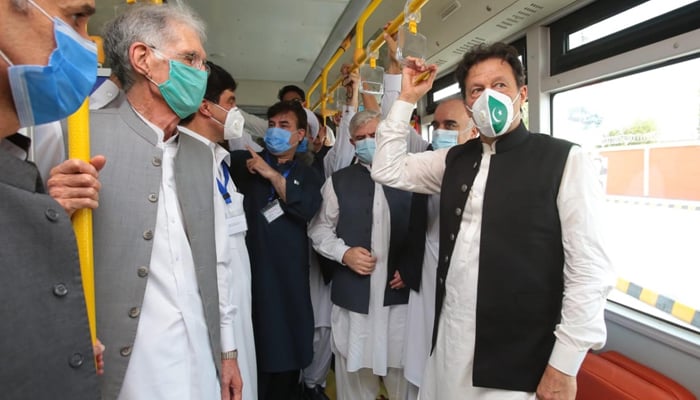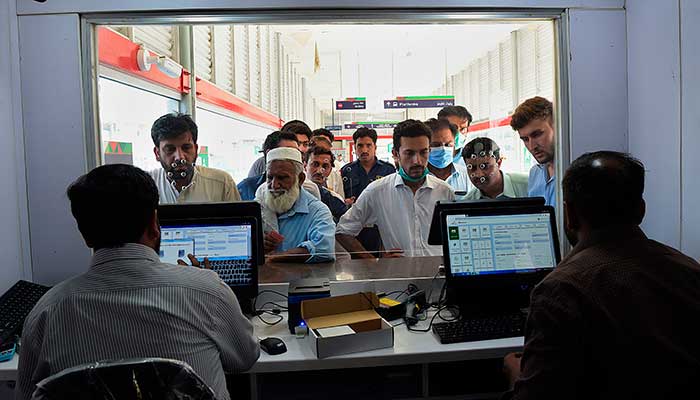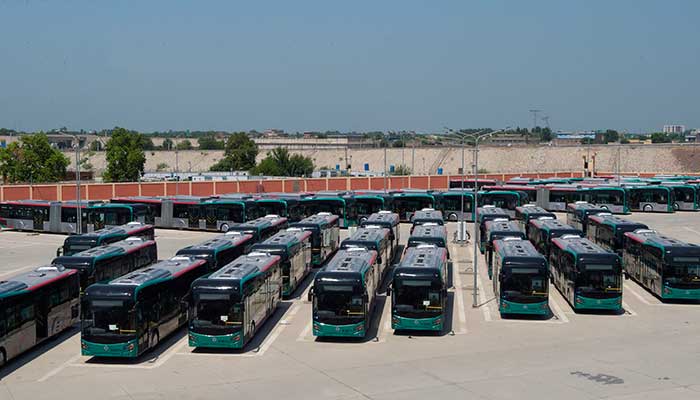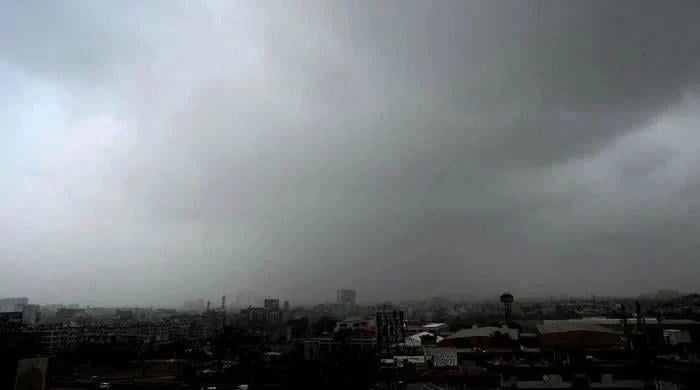PM Imran inaugurates Peshawar BRT
KP Chief Minister Mahmood Khan along with Defence Minister Pervez Khattak were present at the launch of the project
August 13, 2020

PESHAWAR: Prime Minister Imran Khan inaugurated the Peshawar Bus Rapid Transit (BRT) project on Thursday, which is the flagship project of the PTI-led Khyber Pakhtunkhwa government to make daily commute easier for the locals.
KP Chief Minister Mahmood Khan, along with Sindh Governor Imran Ismail and Defence Minister Pervez Khattak, was present at the launch of the project, where the premier also delivered a speech.
While inaugurating the project, PM Imran said while he had reservations about it earlier, former chief minister KP Pervaiz Khattak ultimately allayed his concerns.
"A good transport system benefits everyone," said the prime minister, hoping that the system will reduce commute cost for daily travellers.
"Our aim is to make the lives of common people easier. The cost of Rs10 to 50 is enough and doable by daily wagers. If a daily wager cannot find a job here he can go to another place," said PM Imran.
He said that tickets for students will be introduced so it is easy on their pockets and will aid in mobility as well.
"This connects the entire city, will increase per capita income and when you have a good transport system, it changes things," the premier spoke of the BRT project.
PM Imran expressed satisfaction over the eco-friendly aspect of the transportation medium, saying that the buses are being run on a hybrid of diesel and another petroleum source that will reduce pollution as well.
Read more: Peshawar BRT likely to be launched this week
Special Assistant to Chief Minister on Information and Local Government Kamran Bangash told the media earlier on Wednesday that 360 bicycles for both men and women have been arranged, besides buses, on the 27km bus rapid transit (BRT) track.
Bangash added that the project would provide relief to people in the provincial capital in terms of better transport. Speaking about the details of the project, Bangash said the ZU-BRT uses a third-generation technology system, which will benefit the passengers.

He added options of lifting and bus services will be provided for special persons as well.
“The opening of BRT route would stop rickshaws without permits. Buses and wagons are being also phased out from the roads and Mazda bus drivers and wagon drivers, who can operate BRT buses, have also been integrated into the service,” he added.
Bangash added that BRT buses were environmental-friendly and comfortable.
Rs70billion BRT project
The Rs70 billion BRT project consists of a 27.5km main track and 31 stations while the length of the feeder routes is 62km and has 146 stops. The main track is connected to seven different areas of the city so that the people can travel from their areas in small buses to reach the main route. Three mega commercial plazas would be completed in June 2021, but the bus parking areas are ready.
Official documents have estimated that the initial estimate for the BRT project was Rs49.43 billion, however, the cost of the revised PC-1 had increased to Rs66.43 billion, which was further increased to Rs70 billion.
The Asian Development Bank (ADB) and AFD had provided loans amounting to $593 million loan for the project, while the remaining amount was provided by the provincial government.

The estimated cost of BRT's civil work (27km track and stations), depots and ITS has increased from Rs32,863 million to Rs52,446 million. Expenditure on parking plazas and off corridor facilities has increased from Rs95 million to Rs320 million. Bike-sharing facility has cost Rs132 million whereas the ADB's financial charges, supervision cost and advertisement expenditures have increased from Rs493 million to Rs1,156 million.









